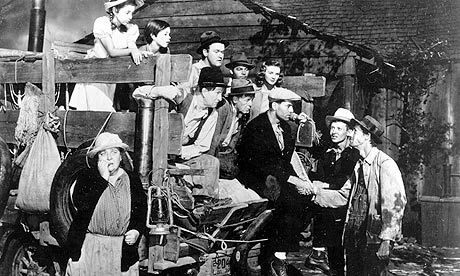[sgmb id=”1″]
Prompted by a slight uptick in wage growth last month and the resulting volatility it caused in the equity markets, the continuing tug-of-war between containing inflation and wage growth Fed and political policies is getting more attention, but little action.
 The good news is that there are more articles on this topic that are putting the wage growth policy dilemma under the spotlight.
The good news is that there are more articles on this topic that are putting the wage growth policy dilemma under the spotlight.
As you can see in some of these articles, the continuing theme is the battle between modern Wall Street and traditional Main Street, between the finance class and the average American consumer, democracy versus special interest groups, and what it means for American society.
Here are some good articles, old and new, on this topic, including a discussion about whether too much democracy leads to fascism:
–The Atlantic, America is Not a Democracy.
The audio file of this article, is at this site.
[The lack of the current public disenchantment is] “a suspicion stoked by the fact that, across a range of issues, public policy does not reflect the preferences of the majority of Americans. If it did, the country would look radically different: Marijuana would be legal and campaign contributions more tightly regulated; paid parental leave would be the law of the land and public colleges free; the minimum wage would be higher and gun control much stricter; abortions would be more accessible in the early stages of pregnancy and illegal in the third trimester.”
–The Impact of Economic Anxiety in Postindustrial America, by Nancy Wiefek, 2003
Describes the role of financial insecurity and how it helps contribute to overall financial insecurity and mental problems. Contains a possible explanation for the opioid crisis and why Trump was elected.
–Who is the Economy Working For?
The Impact of Rising Inequality on the American Economy
Hearing before the Subcommittee on Economic Policy of the Committee on Banking, Housing and Urban Development Affairs
United States Senate, One Hundred Thirteenth Congress, Second Session on Exploring the State and Trends of Inequality and Wealth Concentration in the United States and Its Impact on the Middle Class and Economy Overall
Printed for the use of the Committee on Banking, Housing, and Urban Affairs, Sept. 17, 2014
Congressional Testimony S. HRG 113-536
A rare Congressional hearing under the Democratic administration of Barak Obama into the origins of income inequality from a variety of experts. This testimony provides a lot of the basis for the Bernie Sanders and Progressive platforms.











